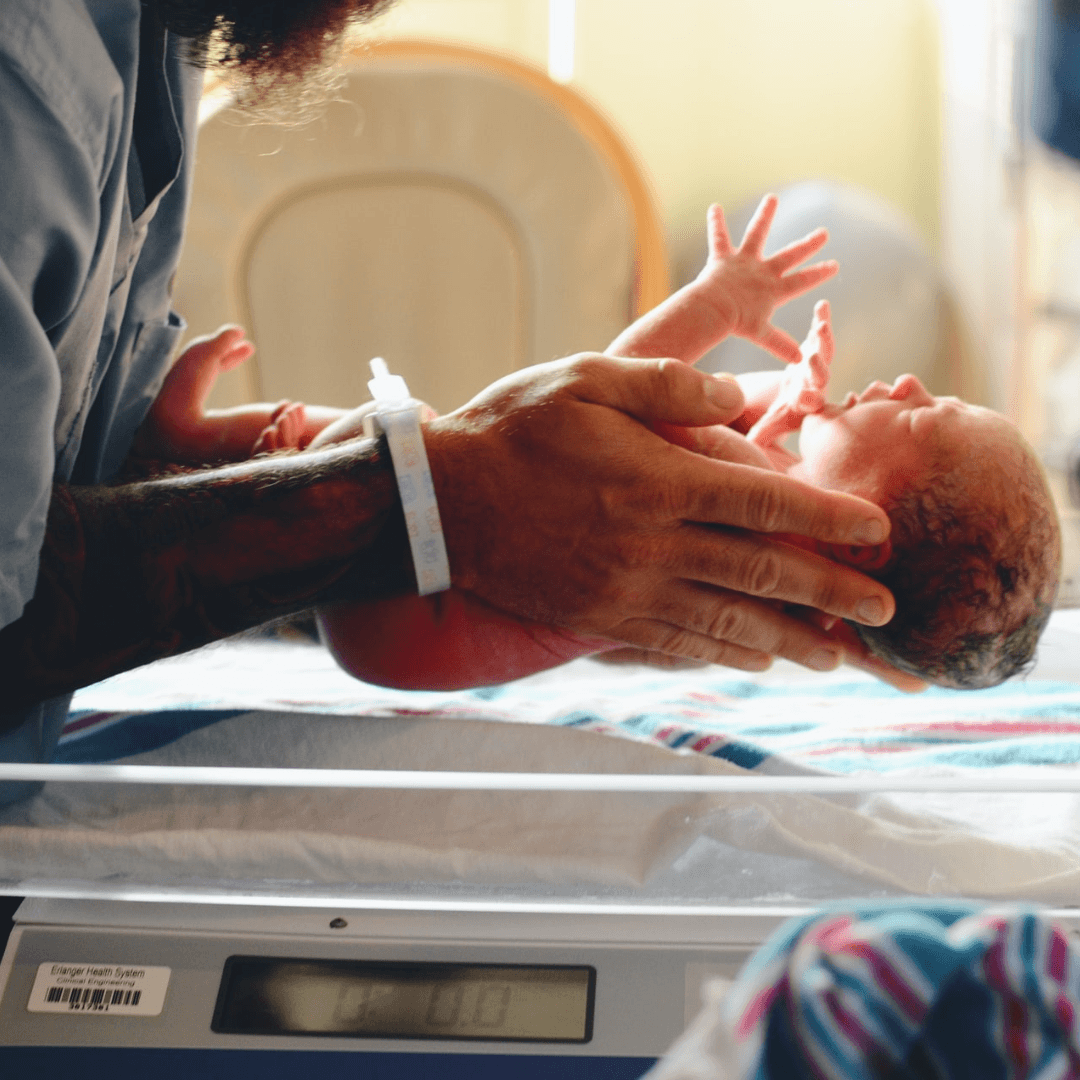Welcome to the caregivers who have just entered the world of novice parents. Today we are going to talk about the height, weight, and development of newborn babies!
Standard Values for Newborn Development
(Refer to the 2017 growth chart for children and adolescents.)
[Median Boys]
- Weight: 3.3kg
- Height: 49.9cm
[Median Girls]
- Weight: 3.2kg
- Height: 49.1cm

During this time, babies gain weight very quickly. In the first month, the baby's weight increases by an average of 30-40 g per day, and after one month, it increases by an average of 1 kg compared to the time of birth. A baby's body temperature, on average, is over 37 degrees Celsius, so it's normal for them to feel a little warmer than an adult.
Newborn Physical Development
They still can't straighten their neck. Since this is a time when they cannot control their neck, you must be careful not to shake the child's head excessively when taking a bath or holding your child. They also can't see clearly because their eyesight isn't clear yet, but they can respond to sounds.
Neonatal Language Development
Crying solves everything. A baby cries when they are hungry, they cry when they are full, they cry when the room is hot, and they cry when it is cold. This can be very difficult for new parents, because it is difficult to ascertain the cause of a child's crying.
However, it is perfectly normal for a child to cry. If you take a closer look, you can see that there is a subtle difference between crying when they are hungry and crying when they are sleepy. There are ways to observe the cry in order to distinguish it well.
Emotional Development
For the first two weeks after birth, your child will have no attachment to a specific object. They don't discriminate. However, as the first month of their life passes, the child gradually realises who their primary caregiver is.
You can confirm the presence of their mother through the smell of your milk and your voice. During this time, it is most important to give your child a warm hug and play with them a lot.
Cognitive and Social Development
Babies recognise their caregivers and smiles and other reactions are usually possible after 2 months of age.
Immediately after birth, children do not have much to do. There is only a slight degree to which the child reflexively sucks or turns their gaze toward a sound.
However, repeated practice of these reflex functions is an important factor in the development of a child's large and small muscles. It is helpful to be proactive in responding to your child's actions, such as holding a parent's finger when they try to grab it and waving it together.
Always speak warm and kind words to your child. It is easy for marital quarrels because you and your partner’s bodies and minds are tired, so it is helpful to discuss ways to reduce quarrels before childbirth.
---------------------------------------------------
Author: Lee Ji-hyun
- A Secondary School Level 2 Teacher Certificate
- As a real mother of a child, she ponders specific parenting tips between reality and theory. She has worked as an educational civic activist and freelance journalist.









